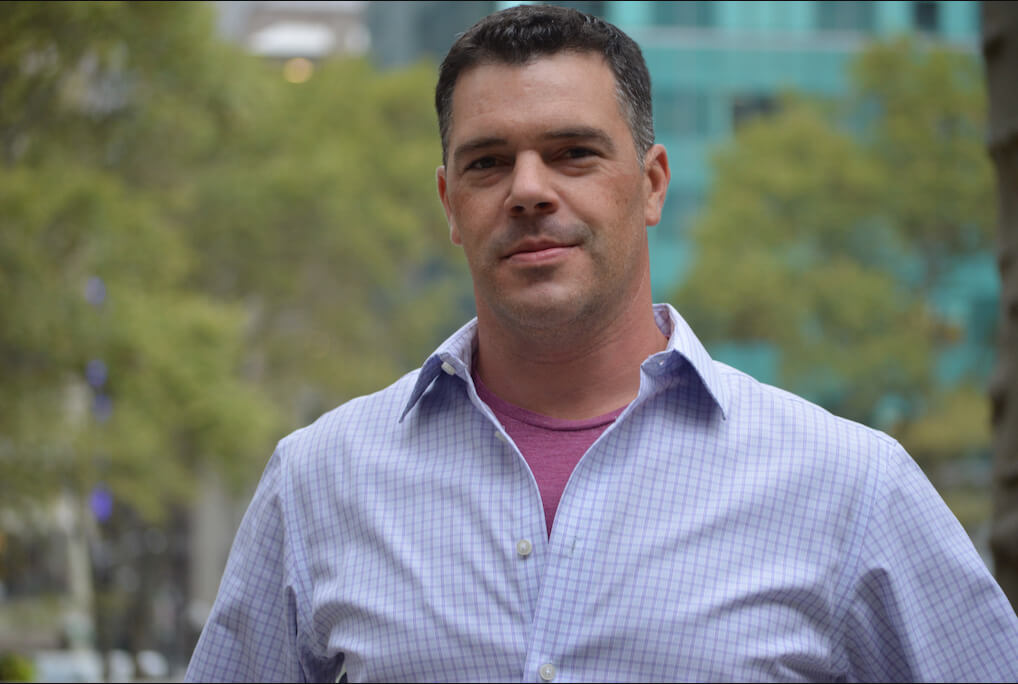
Looking for a new job is a major event for most of us. It can change your life for the better, but it’s an adventure where the outcome is never certain. Having helped thousands of candidates land jobs they love, I’ve learned a few tips to help job seekers on their personal journeys. In this three-part series “Win the Offer,” I will share some of that advice. In this first part, I will focus on what you need to know before you start the job hunt.
No great adventure has ever succeeded without the right preparation. Too often we jump right into the job search process without thinking. But that is not a job search strategy. If you want to find the job of your dreams and win the offer, you need to lay the groundwork.
In ancient Greece, when a hero was preparing to set off on a great adventure, they would first visit the Oracle at Delphi so they could learn their future. When they got there, what they found was a message engraved over the entrance: “Know Yourself!” That was the real secret that these adventurers came to learn. When you truly “know yourself” you can make your own future happen.
I offer the same advice to anyone who wants to be the “hero” of their own job search adventure. Before you start looking for a job, get to “know yourself.” Reflect on what it is you expect to get out of your next career step. Start by asking yourself a few questions:
What Is Motivating You?
You may already know the reason you want a change in your work situation, but it could also be a vague sense of dissatisfaction or desire for a change of scenery. The thing is, if you don’t know what you want or what you’re trying to fix, you risk walking into the same situation all over again. If you feel stagnant, what’s the cause? Money? Lack of advancement? Not learning any new skills? Try to get to the bottom of it. Why do you feel the way you do? What changes would fix it and make you happier? And taking a step back, are you on the path you want to be? If not, how can you get back on track?
What Is the Real Reason You Are Looking for a New Opportunity?
Trust me, this question will come up. Whoever is looking to hire wants to know that you are enthusiastic about the position and not just interviewing out of boredom or testing the waters. You need to have a genuine reason, other than “I just feel like it” or “It’s time for a change.” Identify what is driving you, then apply that to your career journey.
What Is Your Elevator Pitch?
Every candidate needs to have a 30-second blurb about themselves rehearsed and ready to go. When someone says to you, “Tell me about yourself,” do you know yourself well enough to answer? This is how most hiring managers typically begin an interview. That means it’s an amazing opportunity to frame the conversation and how you present yourself, if you’re prepared. You should know:
• What is your goal?
• What drives you?
• What is something they *can’t* discover by reading your resume or LinkedIn page?
• What is something about you that would make them say “wow”?
Your elevator pitch is your chance to really wow them. Don’t pass it up.
Do You Know Your Resume?
Your current position is naturally the freshest in your mind, but all your experiences are fair game for discussion. When the time comes to revise your resume, don’t limit it to updating your current duties. Make adjustments to your past experience to emphasize how you’ve developed and used the skills you need for the positions you’re applying for now.
You need to have a rehearsed sentence ready for every bullet point on your resume. Know what you’ve done and how to field questions on it. Just because it’s something you did a few years ago, don’t assume they won’t be interested in learning more. After all it’s your experience, and it’s part of your skill set and who you are.
The key to a successful job hunt begins with preparation. Before you send out your first application, make sure you know yourself: who you are, what you’re looking for, and what you can offer. One you have that down, you’re ready to go.
_____________
Stay tuned for the next edition of Win the Offer, where I’ll be covering pre-interview preparation. Be sure to subscribe so you don’t miss it!

It can be a shock when a candidate turns down a job offer. After all, you wouldn’t have made the offer to someone if you didn’t think they would accept it. You put significant time and effort into interviewing this candidate. Of all the applications you received, this was the one you judged to be the best fit for your company. And now you’ve got to go back to the “drawing board.” It can leave you scratching your head, wondering “Why?”
This can be a frustrating experience. But the good news is that it can be avoided. The reasons most people turn down jobs are not mysterious. If you know what to look out for, you can usually see it coming. And you might even be able to turn a “no” into a “yes.”
Here are the REAL reasons why people turn down jobs. Keep these points in mind not just when decision time comes but throughout the interviewing and hiring process. If you understand the hurdles ahead of you, it’s a lot easier to navigate your way to the finish line.
Did you ever ask the candidate, “Do you want this job?,” “Do you really want to work here?,” or “Are you excited about the opportunity to join our team?” It’s easy to forget that interviews are a two-way process. The candidate is also using the interview to learn more about the position and decide if it’s the right fit for them.
Before you make an offer, be honest with yourself about whether the job you’re offering is one that this “perfect” candidate you’ve found is likely to want. Here are some points to take into consideration:
- People accept a position for a lot more than just monetary reasons. Even if you meet a candidate’s salary expectations, it’s rarely the only factor they’re considering. And the flip side of that is also true — a lot of money may lure someone to work for your company, but will it keep them there?
- What is the company’s technology platform? Is it legacy or cutting edge? What innovative ideas are you pioneering? It’s easy to overlook, but candidates like to be excited about the tools they’ll get to work with at their new job.
- What is the title and actual role itself? If they’re a Principal Engineer, call them that, not “Senior.” Yes, this matters. (Lots of people like to say that titles don’t matter, but it’s much easier to say that when you already have the title you want.)
If you can identify any of these as potential issues during the interview process, it doesn’t mean to give up on the candidate right away. Many candidates are still undecided at this stage, so use the opportunity to sell your company and its mission, and you may win them over. Still, not every candidate is the right fit, and identifying these roadblocks early can save you a lot of wasted effort and time.
The true takeaway is this: if you understand what the challenges in getting your offer accepted are, then knowing the answers to the real questions will help. This is where a true value-added partner like Averity is critical in delivery. Averity has the expertise to help you find qualified candidates that will be just as excited about joining your team as you will be about welcoming them aboard.

Tom Brady has it easy. The last time he was looking for a job, he didn’t have to send an email to the Buccaneers’ career site with a copy of his resume attached and follow up multiple times trying to score phone screening with their HR department. Of course not — the whole idea is ridiculous. He has an agent he can lean on, who’s there to take care of him whenever “the time comes” and he’s ready for a change.
The hiring and interviewing process can be time-consuming and tolling, which requires a trusted source to aid in communication, screening, scheduling, and feedback. Brady may be one-of-a-kind, but when it comes to a career approach, he’s not alone. Not everybody is on the cusp of negotiating ten-year, $300 Million contracts, but if you’re an in-demand engineer, you have choices. You can decide to put yourself out there on your own and wade through the tidal wave of responses looking for the one or two good catches in a sea of mediocre openings. Or, you can decide to seek representation and get someone on your side to take care of the tolling process of actually landing the next step in your career.
Is Your Recruiter Working for You?
Turning to professional help for your career is a smart first move, but there’s still a lot to decide. Not all recruiting firms are the same, or even have the same interests at heart.
That’s why it pays to know what you’re getting into. You could find yourself with A) some recruiter talking you into accepting a position that happens to be open at, say, an ecommerce company, versus B) working with an expert in your craft to properly market you to the organizations you really WANT to be a part of. Those are very different services, and it shouldn’t be hard to picture the very different paths they could set your career down.
The former is what gives recruiting a bad reputation, especially in the tech industry. Too many, candidates are widgets to be processed as quickly as possible. But there are alternatives, firms that have a commitment to service, a focus on people, and a passion for what they do. They treat people like people, and they’re there to represent your interests. They’re not just trying to get you to take the first position that comes up, they help you find the right career move for you and your future.
Don’t Do the Heavy Lifting Yourself
Chances are you’ve been through the job-hunting process once or twice. Even if you’re not actively looking today, it’s worth examining your process so that you’re prepared when the time comes.
Ask yourself a question: When you’re ready to look for a job, what do you do first?
A: “I call you and your team. I know that within a month, I’ll have five interviews and three offers at companies that I want to work for.”
Versus:
B: “I don’t really know. I apply to a bunch of jobs I see on the internet and hope they get back to me based on what I put down on a piece of paper. I’ll get bombarded by hacks on LinkedIn that call themselves ‘recruiters’ but who think I’m something I’m not because their robot engine picked up a keyword in my background. Then I finally quit looking on my own and just call a real recruiter.”
Which sounds more like you? If you answered B, think about how much that process may be holding you back. Now think about how much easier it would be with a strategy in place and with help on your side.
Know Your Value
You know you’re good at what you do. You know your skills are in demand. You’re at the top of your game. Your time is valuable to you, so don’t waste it. You could job hunt without a strategy and send resumes to every inbox you find, and then just cross your fingers and hope for the best. Or you could be like Brady.
The best in the business are represented by professionals who understand them, who know their needs and their wants, and who get why this is important. They have someone they can lean on. You deserve someone you can lean on too.

Consider this all-too-common common scenario: you’ve identified the ideal candidate for a role you desperately need to fill. They’ve aced the interview, they have all the right skills, and you’re able to match their salary expectations. You make the offer . . . and they turn you down. What happened? There are many reasons outside your control why a potential hire might say no to a job offer — a higher offer from another company, an unexpected development in their personal life — but a lot of the time, it’s because you didn’t try to convince them why they should work for your company. You didn’t make the sale.
Convincing a potential recruit to come work for your company takes more than a salary and a job description. If they’re worth hiring, they have their pick of places to work, so it’s up to you to show them that your company is the best one for them. The tricky part is knowing what to do. How do you sell your company? And what is it that you’re really selling?
Embrace your inner salesperson
People usually frown at the word “sales.” It brings to mind snake oil, sleazy people, or hustlers that pull one over on you. However, use the word “advisor” or “consultant,” and your mindset tends to change. Your financial advisor sells you portfolio advice, but you don’t think of them as a salesperson. You trust them, because they’re an expert, and you believe they know what they’re talking about.
You should think of yourself as similarly offering helpful advice. If a candidate is interviewing for a job, it typically means they’re looking for something they’re not getting where they currently work. Obviously, they want a higher salary or more responsibility. You can take it as a given. But they also want to work at a place that feels right for them. If you can provide that, you’re giving them something they need. You both win.
All job interviews are two-way conversations. They’re trying to learn more about you just as much as you’re trying to learn about them. The candidate is depending on you for that information because you’re the expert. Advise them.
Sell your conviction
Go back to when you were hired. During your own interview you had to sell yourself. You needed to convince the hiring manager that you were worth hiring and to take a chance on someone like you. You had conviction when someone asked, “Why should I hire you?” You believed in yourself and you were able to convey what set you apart from everyone else. And it worked.
Now that you’re the hiring interviewer, the shoe is on the other foot, but the situation hasn’t really changed. This time the question is, “Why should I work here?” (Even if the candidate doesn’t come out and say it in those exact words, that’s what they really want to know.) The right answer is still the one that’s delivered with conviction. You yourself need to believe your company’s a great place to work.
Close the deal
You want people to work for you and work for your company. Start at the beginning: why do you actually work there? Why did you take the job in the first place? If I asked you these questions, you would answer with some conviction and start “selling” me all the great offerings your company has. If you love where you work, then persuading hires why your company is the right fit should come naturally.
Keep these two points in mind the next time you’re discussing your company during and interview, and the answers will come naturally:
Assuming a candidate already wants to work at your company is a mistake you can’t afford to make. Use the interview to sell them on your company. Enthusiasm is contagious, so win them over, and you’ll have someone as excited to work there as you are.
How well do you know your own brand? If I asked you to define your brand in a sentence, could you do it? If you don’t have a clear picture in mind, you can be sure your customers don’t either.
A brand is more than a company name or a logo. It’s your reputation, your marketing strategy, and more. Put simply, a brand is a communication tool, and investing the time into establishing a clear brand pays off. Without the visibility and credibility that a strong brand delivers, your product is indistinguishable from the next one – it might as well be invisible. A brand is what helps you stand out from the crowd. This applies just as much for finding customers as it does for attracting talent: a well-built brand will do the talking for you.

Why build a brand?
If you want a brand that speaks to your audience, you’re going to need to put the effort in to build it. Don’t rely on the brand to build itself. Put the groundwork in now, and the brand will do the work for you later. Let’s take a look at some of the benefits a brand gives you:
At the end of the day, the question is, how hard do you want to work? Let the brand do the work for you. Take an example: how often do you explain what you do or where you work to someone? It can take a while for them to get it. But when someone says, “I’m an Engineer for Google,” people don’t ask “Where?” or “What does Google do?”
How to build a brand
Now that we know why a brand is so critical to your company’s success, here are some tips for how to do it right:
At Averity, we strive to build a brand around hiring people, and that’s what sets us apart. Other recruiters may focus on delivering resumes, filling positions, or finding skills, but when it comes down to it, you’re not interacting with resumes and skills on a daily basis. Your coworkers are people. That’s one of the reasons why we built our Human Platform. Averity’s Human Platform makes it easy to find all the information you need about the candidates — that is, the people — that you’re looking for.
So give some thought to your brand. Know what you’re offering, identify the feelings you want your brand to evoke, and get that message out there. It’s worth it.

The success of a recruiting strategy might seem easy to measure — find the right talent that a company needs, and then just sit back and watch both hire and company succeed — but how you get there is not always so clear. Without the right plan of action, the hiring process can drag on forever, or, worse, you could end up hiring the wrong person for the job.
As a recruiter I’ve benefited from the wisdom and advice of experts in the field (and learned a few things the hard way). Here are ten helpful tips I’ve learned for successful recruiting, plus a few practices to avoid. These lessons apply whether you’re a professional recruiter or an internal hiring manager looking to fill a role. That said, if you are looking to hire someone for your own company, or especially for your own department, I encourage you to consider them carefully. After all, you’ll be working closely with the person you end up hiring.
At Averity, we know how complex the recruiting process can be for employers. It’s one thing to know what you’re looking for, and another to find it. Our Human Platform helps companies connect with the right employees. It’s an easy-to-use platform that gives accurate, accredited information about actual candidates on the market, beyond buzzwords and acronyms, giving you not just their backgrounds but what they actually want to do. Simply choose who you like, request an interview, and an Averity Talent Advocate will take care of the rest.
At the end of the day, no two job openings, and no two candidates, are exactly alike, so you’ll need to rely on your own judgment when making the final decision on who to hire. Keep these points in mind and it may help you avoid some of the most common hiring mistakes. Trust your instincts, but always be prepared. Happy hiring!
I am proud to announce that Averity has partnered with Feeding America to create a dollar-for-dollar fundraiser, matching donations from Averity clients, candidates, and friends up to $200 per person! Giving back is an important part of the Averity mission. In 2020, hunger took a heavy toll on Americans due to the impact of COVID-19 on unemployment, homelessness, and food insecurity. In fact, more than 50 million people may now face hunger due to the pandemic. That’s why now more than ever, we must come together to fight hunger and heal our communities.
Credit: Feeding America
Feeding America is the nation’s largest hunger relief organization, Through a network of 200 food banks and 60,000 food pantries and meal programs, Feeding America provides meals to more than 40 million people each year. When you support Feeding America, you are helping our nationwide network of food banks deliver programs at the front line of hunger. Programs like school-based food pantries, emergency disaster relief, and Kids’ Cafe. Just $1 can help provide at least 10 meals to kids, families and individuals facing hunger.
Click here to see our impact and make your donation. Want to get others involved? Share this link with your friends! Thank you so much for your support.
Sincerely,
Chris Allaire, CEO & Founder of Averity

The hiring process is more complex than it’s ever been. The bottom line is that you need someone who is qualified, interested and available, but finding this can feel like trying to find a needle in a haystack. If you know what you’re looking for and are willing to put in the preparatory work, you can avoid the most common mistakes and increase your chances of landing the right candidate.
When I founded Averity, I put in place the Averity Process, a five-point system to help companies find the right person for the job. From where to start to closing the deal, here are the tips you need to find the right person when it’s time to make your next hire.
Step One: Identify
Before you begin, you need to lay the groundwork. It’s as simple as this: you can’t find the right candidate if you don’t know what you’re looking for.
Step Two: Qualify
It pays to do a little homework. Confirm that the candidates you’ve found are qualified, actually interested, informed and available to start the job within a reasonable time.
Step Three: Interview Coordination
You won’t know if you’ve found the right person without interviewing them. Until you speak, you’re just reading a list of accomplishments on paper. You’re not hiring resumes, you’re hiring people.
Step Four: Transparency
You and the candidate have made it this far. Being open and honest is the best approach for both parties.
Step Five: Oversee Closure, Start, and On-Boarding
You’ve found the right person . . . now what? A little follow through will help transform that outstanding candidate into an outstanding employee.
No two candidates are alike, but with a little flexibility and preparation, you’ll find the one who is uniquely right for you.
Many of us have had the opportunity to hire and manage countless people during our tenure in personnel management. But the hard truth is that many of us can count on two hands how many true “quality hires” we’ve made. Some of us can name them off the top of our head.
A quality hire is an intangible asset. The underlying question is: “How do we know who a quality hire is until we start working with them?” What is the true value of “intellectual curiosity”? This is the true measuring stick of risk versus reward.

There is no real matrix in place for measuring this intangible trait. There are, however, common denominators in what we’ve seen and how we recognize these diamonds in the rough. The Averity leadership team reached out to over twenty executives in various industries and got their version of what a “quality hire” really means for them. Here are the findings, and they won’t surprise you. People hire people, not acronyms, buzzwords, or resumes.
Communication skills:
Attitude:
Personality:
Experience and skill set:
What they are NOT:
Soft skills are the most important dimension in a quality hire. The few people who have had most or all of these characteristics typically get things done, work well with others, make smart decisions, are willing and able to change and get better at whatever they do. At the end of it all, you won’t know the ultimate quality of the candidate until they’ve been hired, but people hire people; skills can be taught. You didn’t hire the resume, you hired the PERSON!

Hello Friends, Colleagues and Clients,
If you’re reading this, you know Averity.
If you’ve worked with us you know what sets us apart. It’s our dedication to the people we serve. After all, we believe that people don’t hire acronyms and buzzwords — we believe people hire people.
That’s why we’re always looking for new ways to better connect with you. Enter “The Download” newsletter.
I am proud to present you with this first edition of a newsletter that will become my place to catch up with you directly, right in your inbox.
Every few weeks, I will be sharing a fresh crop of must-know insights and information from around the industry. But more importantly, I’ll be including my unique, on-the-ground point of view.
I want you to feel like you’re there in the boardroom with me, getting advice and intel from a trusted friend.
My promise is to stuff this newsletter chock full of the things you can’t get anywhere else: the straight download from a tech recruiting owner/operator at the top of the game.
Gather round, I’ve got a lot to share.
Create an Account or Sign In